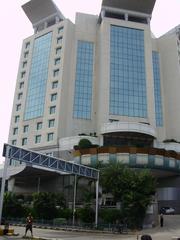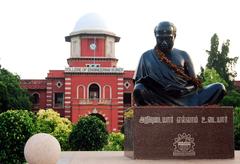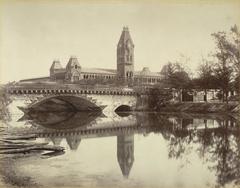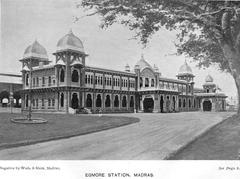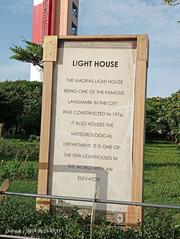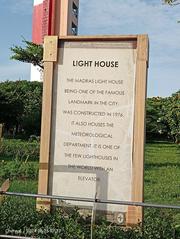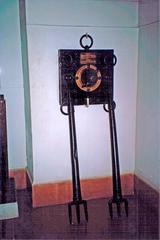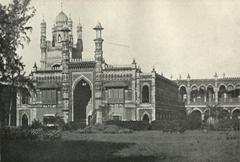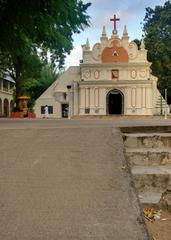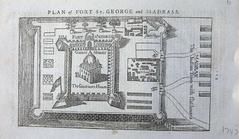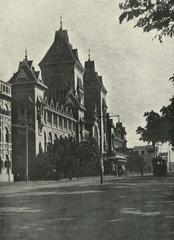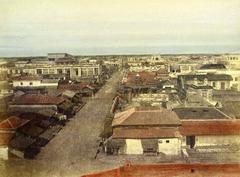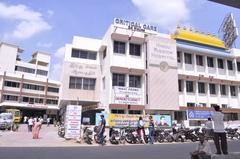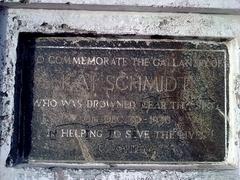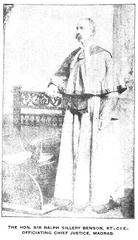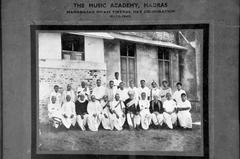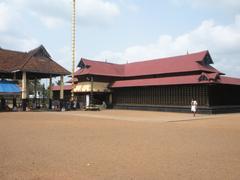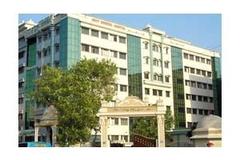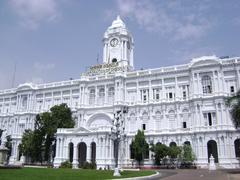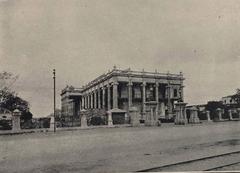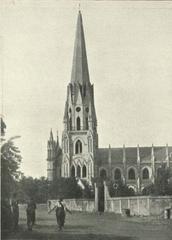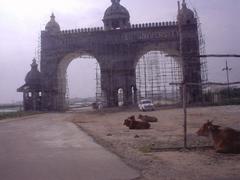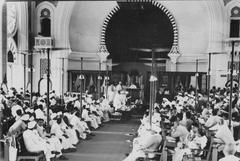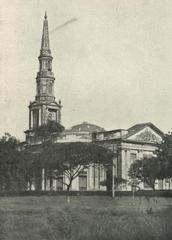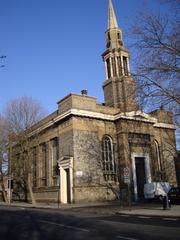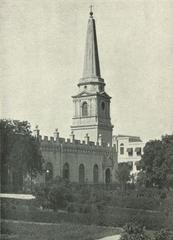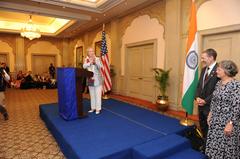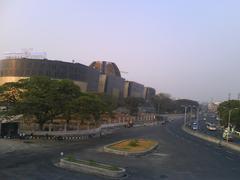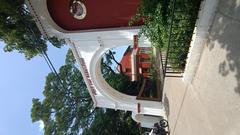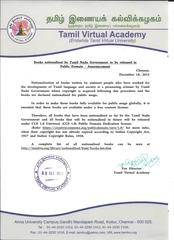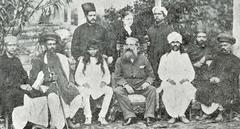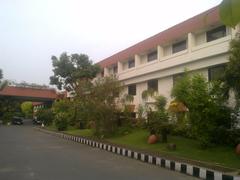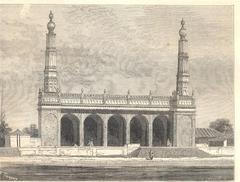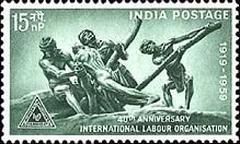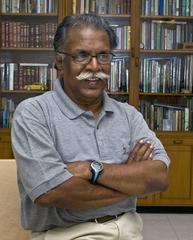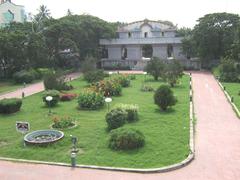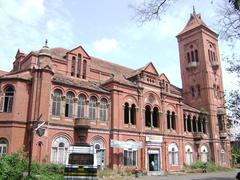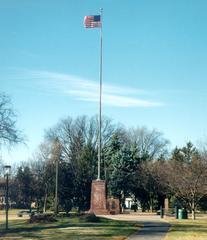Tamil Nadu Open University Chennai: Visiting Hours, Tickets, and Comprehensive Guide
Date: 14/06/2025
Introduction
Tamil Nadu Open University (TNOU), established in 2002 and operational since 2003, is a pioneering institution in Chennai dedicated to democratizing higher education through open and distance learning. As the only state open university in Tamil Nadu, TNOU offers accessible, affordable, and flexible educational opportunities to a diverse student population—including working professionals, rural youth, women, and marginalized communities. Located in the heart of Saidapet, Chennai, the university blends traditional educational values with modern digital methodologies and operates an expansive network of over 600 learner support centers across the state.
This guide provides a detailed overview of TNOU’s historical significance, academic offerings, campus facilities, visitor information, and its broader impact on Chennai’s educational landscape. For official updates and program details, visit the Tamil Nadu Open University official website.
Table of Contents
- Introduction
- History and Establishment
- Mission, Vision, and Educational Philosophy
- Academic Structure and Programs
- Infrastructure and Learner Support
- Visitor Information
- TNOU’s Role in Tamil Nadu’s Educational Landscape
- Alumni and Community Impact
- Frequently Asked Questions (FAQs)
- Conclusion
- References
History and Establishment
TNOU was founded by the Government of Tamil Nadu in 2002 to meet the growing demand for flexible higher education. Its mission was to make university-level education available to those unable to attend conventional colleges due to social, economic, or geographical constraints. TNOU quickly emerged as a leader in open and distance learning in India, aided by national policy initiatives to expand educational access.
Over the past two decades, TNOU has grown its academic portfolio, integrated digital learning tools, and established a robust support system for remote learners. The university is recognized by key statutory bodies, including the University Grants Commission (UGC), Distance Education Bureau (DEB), National Council for Teacher Education (NCTE), Rehabilitation Council of India (RCI), and All India Council for Technical Education (AICTE).
Mission, Vision, and Educational Philosophy
TNOU’s mission centers on inclusivity, lifelong learning, and social transformation. The university strives to provide degree, diploma, and certificate programs that are both relevant and accessible, equipping graduates with skills for employability and societal contribution.
- Vision: To empower learners by enhancing knowledge, skills, and research capabilities through innovative and flexible education.
- Philosophy: Education without barriers—regardless of age, location, or socio-economic status—embodied in open admissions, affordable fees, and targeted scholarships for underrepresented groups.
Academic Structure and Programs
TNOU offers an extensive range of over 218 academic programs, including undergraduate, postgraduate, diploma, and certificate courses across disciplines such as:
- Humanities
- Sciences
- Management
- Education
- Computer Applications
- Special Education
- Tourism
- Vocational Training
Academic programs are managed through 13 schools of study. The university operates on a dual academic cycle, admitting students in January and July, allowing flexibility for learners to pace their studies. Industry collaboration and regular curriculum updates ensure that courses remain relevant and aligned with job market needs.
Infrastructure and Learner Support
Campus Facilities
- Main Campus: Centrally located in Saidapet, Chennai, the campus features modern infrastructure, including a digital and print library with over 25,000 books, an Electronic Media Production and Research Centre (EMPRC), and comprehensive ICT resources.
- Learner Support Network: TNOU supports over 600 centers across Tamil Nadu, including regional and learner support centers, to provide academic counseling, study materials, and examination services for distance learners.
- Accessibility: The campus and its facilities are designed to be accessible for differently-abled students and visitors.
Digital Transformation
TNOU leverages technology to enhance learning by offering:
- Online admissions and e-prospectus
- E-learning modules and virtual classrooms
- Digital resource centers and online examinations
Visitor Information
Visiting Hours and Access
- Operating Hours: Monday to Friday, 9:30 AM to 5:30 PM (closed on weekends and public holidays)
- Admission and Tickets: Campus visits are free; no entry ticket is required.
- Tours: Regular guided tours are not scheduled, but academic visits can be arranged by contacting the administrative office in advance.
Location and Directions
- Address: First Floor, Administrative Building, No. 577, Anna Salai, Saidapet, Chennai, Tamil Nadu 600015
- Transport: Easily accessible via Chennai’s suburban trains, metro, city buses, auto-rickshaws, and taxis. The campus is near Anna Salai (Mount Road), a prominent city thoroughfare.
Campus Facilities for Visitors
- Library access
- EMPRC for digital learning demonstrations
- Student amenities: Drinking water, washrooms, medical assistance
- Wi-Fi and computer labs
- Photographic Spots: Green open spaces, library façade, and EMPRC are popular for photos. For indoor photography, permission is advised.
TNOU’s Role in Tamil Nadu’s Educational Landscape
As the only state-run open university in Tamil Nadu, TNOU is instrumental in democratizing education—bridging socio-economic and geographic gaps. Its flexible programs empower women, working professionals, and marginalized groups, fostering social mobility and local development. TNOU’s innovative digital practices set a benchmark for open universities nationwide.
Alumni and Community Impact
TNOU’s alumni network is active across diverse sectors, benefitting from the university’s dedicated Student Welfare and Placement Cell. This cell collaborates with industry partners to enhance employability and arranges internships and placement drives. Community outreach includes scholarships, skill development, and livelihood enhancement initiatives targeting underprivileged populations.
Frequently Asked Questions (FAQs)
Q1: How can I apply to Tamil Nadu Open University?
A1: Applications can be submitted online via the official TNOU website during admission cycles in January and July.
Q2: What programs does TNOU offer?
A2: Over 218 programs, including certificates, diplomas, undergraduate, and postgraduate degrees across multiple disciplines.
Q3: Are scholarships available?
A3: Yes, scholarships and fee concessions are available for differently-abled, SC/ST, and economically weaker students.
Q4: What support services are available to distance learners?
A4: Academic guidance, study materials, counseling, and exam facilitation are provided through regional and learner support centers.
Q5: Can I tour the TNOU campus as a visitor?
A5: Yes, visitors are welcome during working hours. Academic tours can be arranged by contacting the administration in advance.
Q6: Is photography permitted on campus?
A6: Outdoor photography is allowed. Permission is required for indoor or classroom photography.
Noteworthy Achievements
- Accreditation: TNOU holds an A+ grade from NAAC.
- Innovative Programs: B.Ed. in Special Education, diplomas in Tourism and Media Arts.
- Industry Partnerships: Collaborates with over 300 companies for internships and placements.
- National Recognition: Ranks among India’s top ten open universities.
Scholarships and Social Initiatives
TNOU offers scholarships and fee concessions for students from disadvantaged backgrounds, administered via the Adi Dravidar/Tribal Welfare Department. Community outreach programs promote lifelong learning and skill development, particularly for rural populations.
TNOU in Chennai’s Educational and Cultural Tourism
TNOU enriches Chennai’s educational tourism scene. Visitors can combine a campus tour with exploration of nearby cultural landmarks including:
- Marina Beach: The longest natural urban beach in India, a cultural and historical icon accessible 24/7. For details, see the Chennai Tourism website.
- Fort St. George: The first British fortress in India, offering museum exhibits, guided tours, and panoramic city views. More information: Fort St. George page.
- Kapaleeshwarar Temple: A renowned Dravidian-style temple in Mylapore.
- Santhome Basilica: A significant Christian pilgrimage site near Marina Beach.
Call to Action
For up-to-date admissions information, campus news, and visitor guidelines, visit the official TNOU website. To explore more about Chennai’s cultural and educational sites, consult the Chennai Tourism website. Download educational apps and follow TNOU and local tourism boards on social media for the latest updates.
Internal Links:
Summary and Recommendations
Tamil Nadu Open University exemplifies the transformative potential of open education in South India. Its comprehensive academic portfolio, technologically advanced campus, and commitment to inclusivity make it a cornerstone of Chennai’s educational framework. Combining a campus visit with exploration of nearby heritage landmarks is highly recommended for a holistic educational and cultural experience in Chennai.
Stay connected with TNOU via the official website and social media for ongoing updates, events, and academic opportunities.
References
- Tamil Nadu Open University: History, Academic Programs, Visitor Information, and FAQs, 2025, TNOU Official (https://www.tnou.ac.in/)
- Explore Tamil Nadu Open University (TNOU) in Chennai: Visiting Hours, Campus Info & Educational Opportunities, 2025, TNOU (https://www.tnou.ac.in/)
- Chennai Tourism Official Portal (https://www.chennaitourism.gov.in)
- Fort St. George Government of Tamil Nadu (https://www.tn.gov.in/fortstgeorge)
